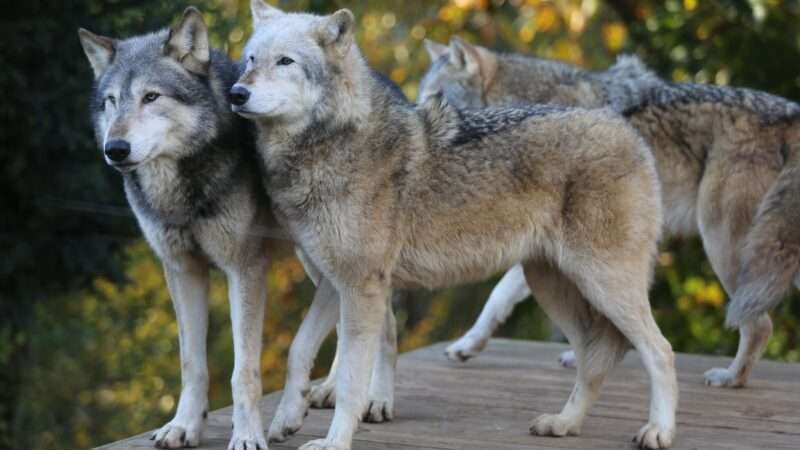
Efforts to conserve and reintroduce wolf populations can be controversial. Such programs can be expensive and ranchers and farmers sometimes fear the potential impact on livestock. (The latter concern has led to programs offering compensation for wolf-induced losses.)
What if the benefits of wolf conservation and reintroduction are greater than we think? What if such programs generate economic gains that far outweigh their costs, including the costs of compensating those who might be adversely affected by increased wolf populations?
I recently came across a paper by Jennifer L. Raynor, Corbett A. Grainger, and Dominic P. Parker suggesting that wolf reintroduction programs generate substantial economic benefits by making highways safer. Here's the abstract:
Recent studies uncover cascading ecological effects resulting from removing and reintroducing predators into a landscape, but little is known about effects on human lives and property. We quantify the effects of restoring wolf populations by evaluating their influence on deer–vehicle collisions (DVCs) in Wisconsin. We show that, for the average county, wolf entry reduced DVCs by 24%, yielding an economic benefit that is 63 times greater than the costs of verified wolf predation on livestock. Most of the reduction is due to a behavioral response of deer to wolves rather than through a deer population decline from wolf predation. This finding supports ecological research emphasizing the role of predators in creating a "landscape of fear." It suggests wolves control economic damages from overabundant deer in ways that human deer hunters cannot.
As to why this is significant, the authors write:
Measuring the economic benefits conveyed by predators is difficult—often, effects are indirect and operate through complex ecological changes. As a result, debates about the expansion of predators have pit salient costs against more speculative estimates of benefits that might be dismissed as unreliable or ideologically motivated. We quantify the indirect benefits of wolves (Canis lupus) to human lives and property through reductions in deer-vehicle collisions. Moreover, we decompose the effect into two components: changes in prey behavior versus prey abundance. This decomposition is important when effective policy depends on whether hunters can replicate the effects of predators. In the case of wolves, we conclude that human deer hunters cannot.
It is often hard to measure the economic benefits of wildlife conservation (and such benefits may not always exist), but this appears to be a case where the benefits are substantial.
The post More Wolves, Safer Roads appeared first on Reason.com.







